How do modern and contemporary art museums act to achieve the Sustainable Development Goals?
This webinar will explore the findings from the CIMAM 2022 survey, How do Modern and Contemporary Art Museums Act to Achieve the Sustainable Development Goals?, conducted among museums of modern and contemporary art museum professionals and curators worldwide on how museums operate in diverse cultural and socio-economic contexts to respond to the SDGs 2030 Agenda.
- Tuesday 4 April 2023 at 6:30 pm BST/ 10:30 am PST/ 1:30 pm EDT/ 11:30 am CST.
Invited Speakers
- Caitlin Southwick, Founder and Executive Director of Ki Culture and Sustainability in Conservation and the Founder and CEO of Ki Futures. As well as the secretary for the working group for ICOM, London, United Kingdom, will provide insight and conclusions from the survey on the social aspects of sustainability.
- Henry McGhie, Founder, Curating Tomorrow, Liverpool, United Kingdom, will share his assessments of progress being made toward environmental goals.
- Martin Müller, Professor in the Department of Geography and Sustainability, University of Lausanne, Switzerland, will give his critical view on the evolution toward greener economies of the museums surveyed.
- Anthony Kiendl, CEO and Director of the Vancouver Art Gallery in Vancouver will present Canada's first passive museum.
Moderated by Louisa Buck, Writer and broadcaster on contemporary art, London, United Kingdom.
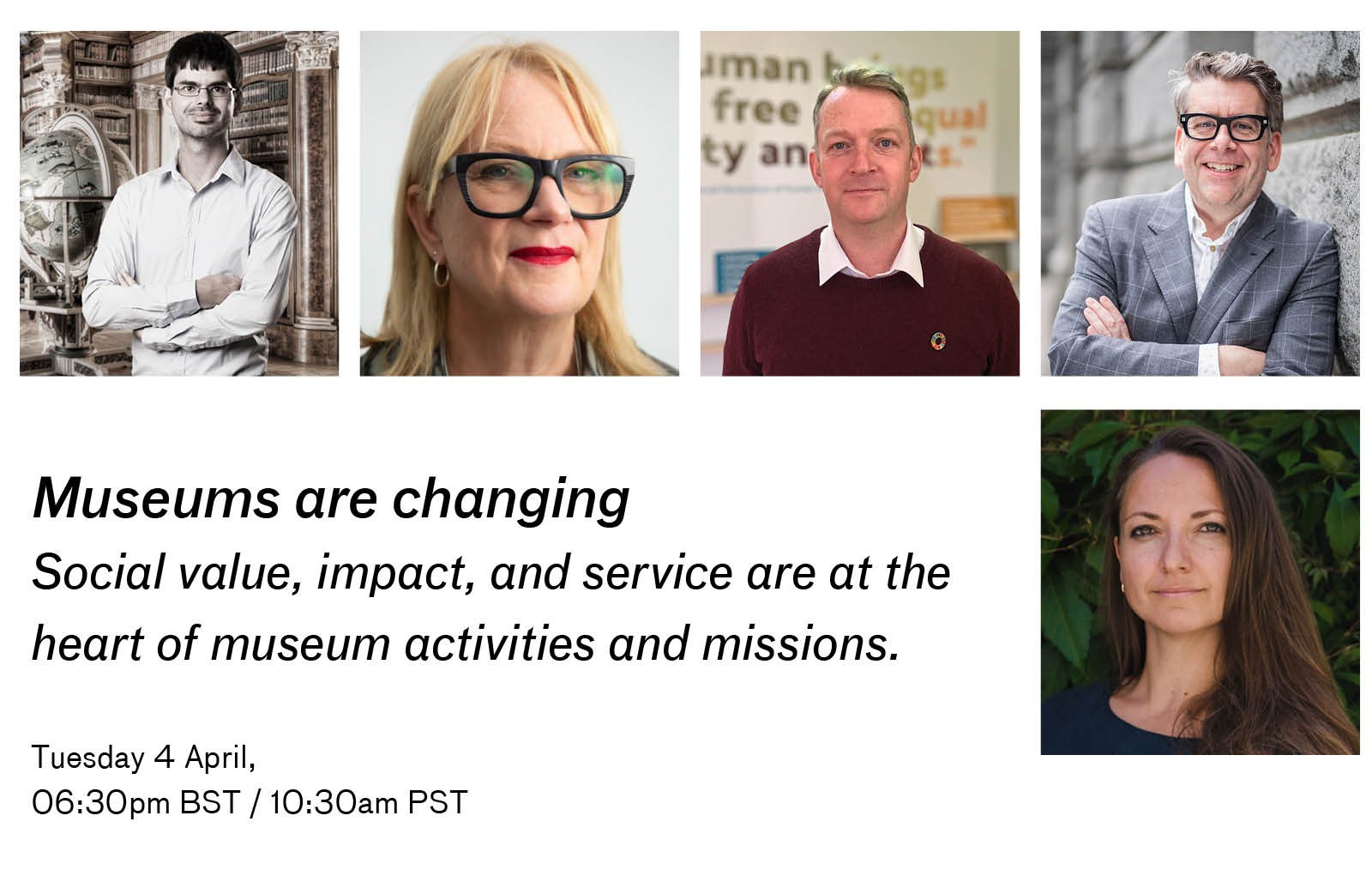
Museums are changing
Social value, impact, and service are at the heart of museum activities and missions.
"Museums need a seat at the table to implement fundamental human rights for our practice and society as a whole. As trusted institutions, these should be conversations we are ready to have and positions we are prepared to take, even in countries where politics don't align with the values and mission of the museums." Caitlin Southwick, Founder, and Executive Director of Ki Culture.
Museums in a green economy
Museums as models and levers for a greener and more equitable economy
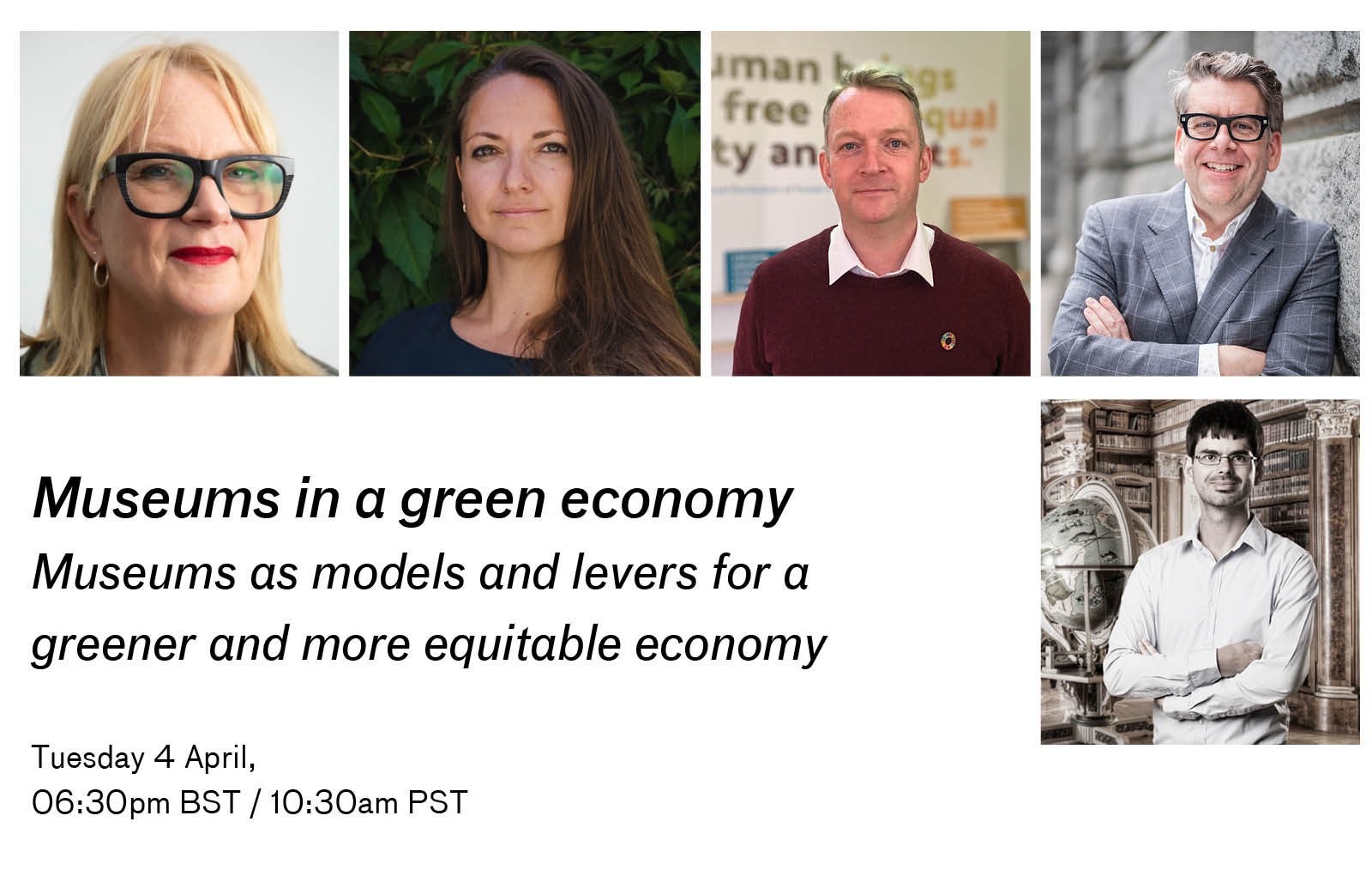
"Economics is a means to an end in the transition to sustainability. It is there to allocate scarce resources - food, housing, education, among others - most equitably and efficiently toward the critical goals of the sustainability transition." Martin Müller, Professor in the Department of Geography and Sustainability, University of Lausanne, Switzerland, will address the economic aspects of the conversation.
Is Green the New Black?
Environmental, Social and Economic Sustainability in Museums
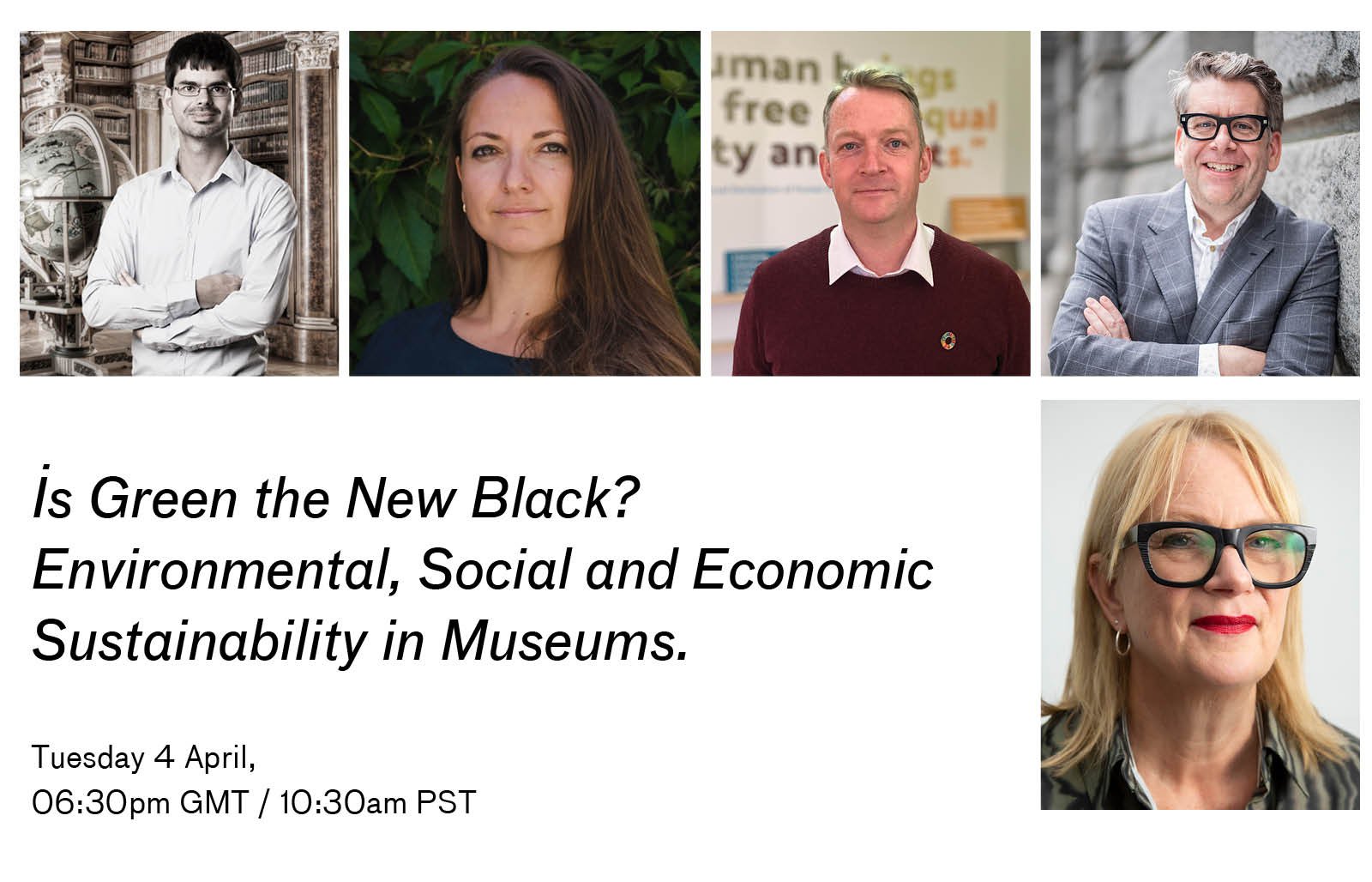
"What are the challenges for museums in responding to the United Nations Agenda for 2030 and Sustainable Developing Goals? How do we assess development in different social, political, and economic contexts for museums around the world?" Louisa Buck, contributing editor, and London contemporary art correspondent for The Art Newspaper and a regular reviewer and commentator on BBC radio and TV.
Museums and environmental action
The environment is a crucial part – but not all – of sustainable development
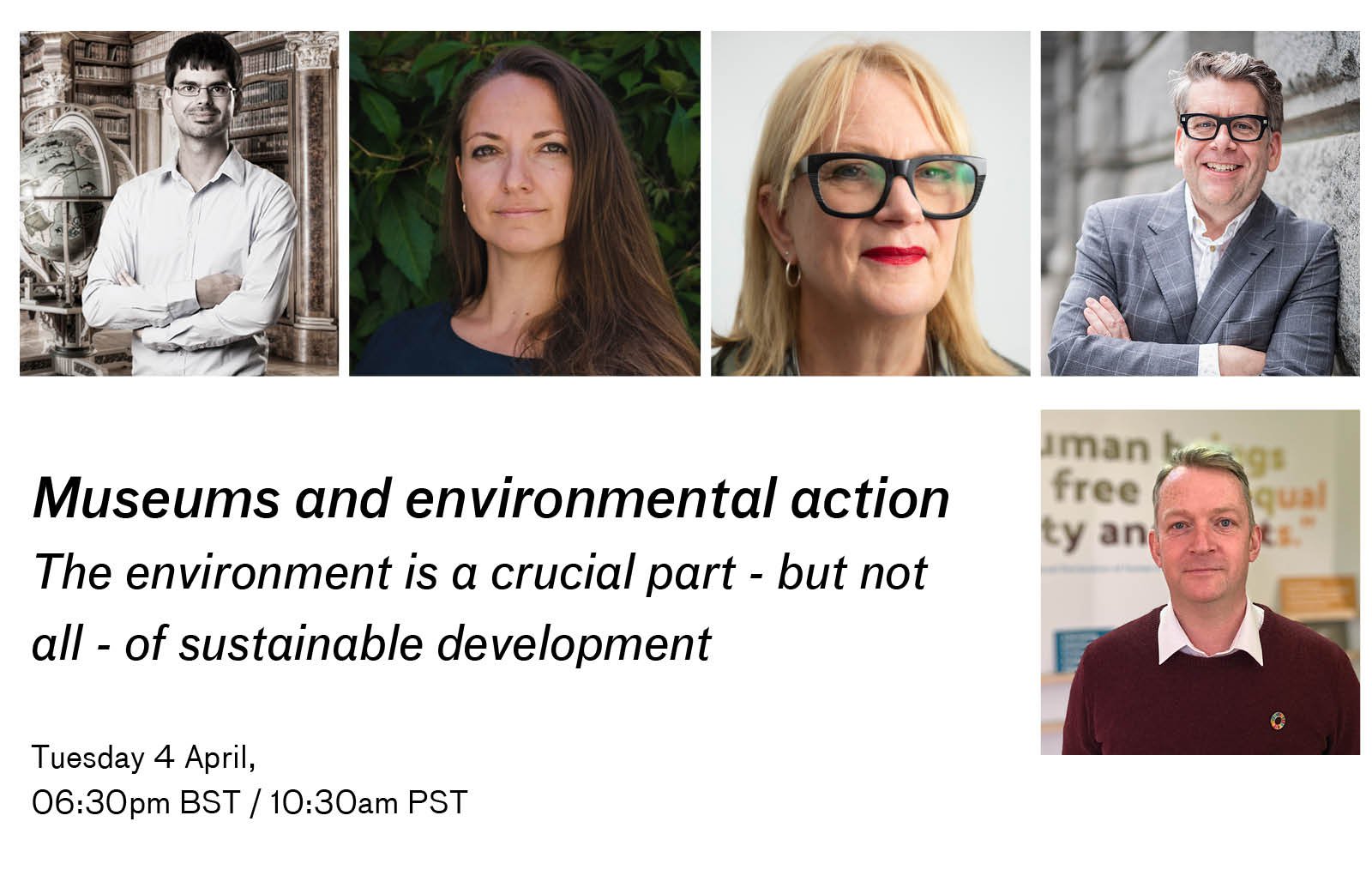
"In the context of Agenda 2030 and the Sustainable Development Goals, the environmental aspect of sustainable development is more or less written into several of the '5 Ps' of the Agenda 2030. People and the environment are connected, and environment, society, and the economy have to be considered together." Henry McGhie, Founder, Curating Tomorrow, Liverpool, United Kingdom, will share his assessments of progress being made toward environmental goals.
Biographies
Anthony Kiendl
Anthony Kiendl is the CEO & Director of the Vancouver Art Gallery. He is an award-winning curator, writer, arts administrator and educator, and community builder with over 25 years of experience in the arts. Prior to the Vancouver Art Gallery, Anthony was the Executive Director & CEO of the Mackenzie Gallery in Regina, Saskatchewan, the Executive & Artistic Director of Plug In Institute of Contemporary Art in Winnipeg, Manitoba, and the Director of Visual Arts, Walter Phillips Gallery, and the Banff International Curatorial Institute at the Banff Centre, Alberta.
Kiendl has worked internationally, in 2011 he was appointed curator of Contour: Biennale of the Moving Image in Mechelen, Belgium. In 2007 he was Leverhulme Visiting Research Fellow at Middlesex University, London, UK.
He has been an invited guest mentor or advisor on leadership in the arts by the Museum Leadership Institute (formerly the Getty) and Business / Arts (Canada).
Caitlin Southwick
Caitlin Southwick is the Founder and Executive Director of Ki Culture and Sustainability in Conservation and the Founder and CEO of Ki Futures. She holds a Professional Doctorate in Conservation and Restoration of Cultural Heritage from the University of Amsterdam. Before founding Ki Culture, Caitlin worked in the conservation field for eight years in museums and sites around the world, including the Vatican Museums, The Getty Conservation Institute, The Uffizi Gallery, and Rapa Nui. She is the Secretary of the Working Group on Sustainability for the International Council of Museums (ICOM) and a Climate Reality Leader for the Climate Reality Project.
Martin Müller
Martin Müller is a professor in the Department of Geography and Sustainability at the University of Lausanne, Switzerland. With his transformative research, he creates knowledge and tools that assist museums, theatres, concert halls and other cultural institutions to become leaders of the social and environmental sustainability transition. He currently leads the research project ‘Culture for the Planet’, which develops a framework for sustainability for cultural institutions and maps the state-of-the-art of sustainability practices around the world. His research has been cited in the The Economist, Art Newspaper, New York Times, Financial Times, BBC World News, Agence France Presse, Associated Press and other international news media. Martin calls Munich home but prefers wine over beer and cycling over football.
Henry McGhie
Henry McGhie has a background as an ecologist, museum curator and manager, with more than thirty years’ experience of working in and with museums. He established Curating Tomorrow in 2019 to empower museums and their partners to contribute more effectively to sustainable development agendas, including the SDGs, climate action, biodiversity conservation, human rights and Disaster Risk Reduction. Curating Tomorrow is founded on three principles: that the future doesn’t just happen, we make it; that the museum-based skills of selection, creativity and attention to creating public value have a role to play in creating better futures; and that museums and the resources they can mobilise can contribute to these better futures. He is a member of the ICOM Sustainability Working Group, and works internationally with museums, museum partnerships and organisations. He writes an open-access series of guides on museums and sustainable development topics that is widely used around the world.
Louisa Buck
Louisa Buck is a writer and broadcaster on contemporary art. She is a Contributing Editor and London Contemporary Art Correspondent for The Art Newspaper and a regular reviewer and commentator on BBC radio and TV.
She is the author of a number of catalogue essays for institutions including Tate, Whitechapel Gallery, ICA London, MCA Australia and the Stedelijk Museum in Amsterdam.
Her books include Moving Targets 2: A User’s Guide to British Art Now (Tate 2000); Market Matters: The Dynamics of the Contemporary Art Market (Arts Council England 2004) and Owning Art: The Contemporary Art Collector’s Handbook (co-authored with Judith Greer) (Cultureshock Media 2006). Commissioning Contemporary Art: A Handbook for Curators, Collectors, and Artists was published by Thames & Hudson in October 2012 and in 2016 she authored ‘The Going Public Report’ commissioned by Museums Sheffield.
Louisa was a judge for the 2005 Turner Prize and is a founding member of The Gallery Climate Coalition.
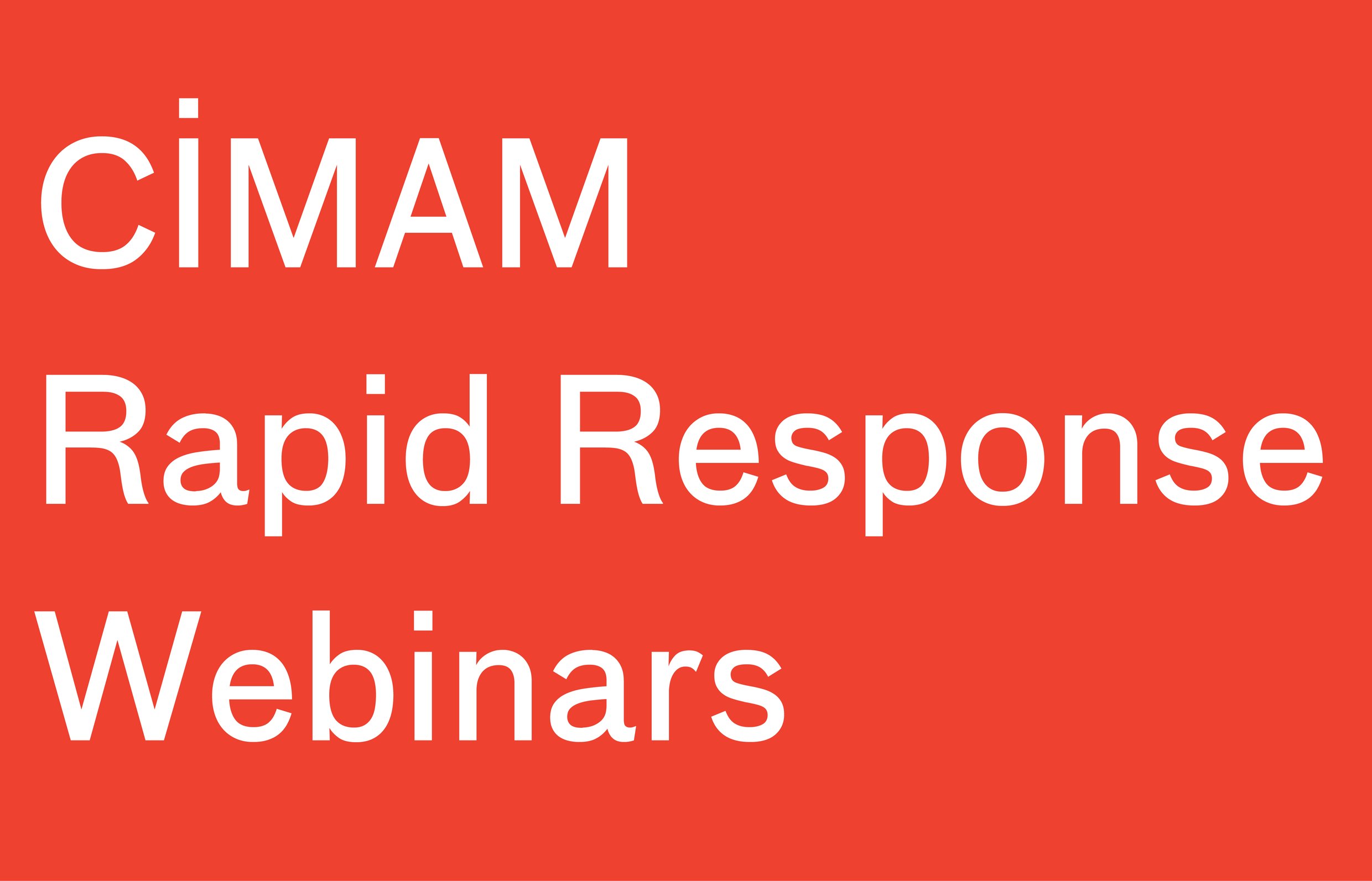
Rapid Response Webinars allow CIMAM members to continue discussing the most urgent concerns and questions affecting the modern and contemporary art museum community at this time. This initiative responds to CIMAM’s spirit and commitment to be a platform for global discussion, a space for sharing and connecting, learning, and encouraging cooperation.
Rapid Response Webinars are free of cost for CIMAM members. Non-Members can attend by paying 10,00€ that will be deducted from their membership fee if they join CIMAM in the next 3 months.
Sessions are recorded and posted in the Members Only section of the CIMAM website for those who missed the time.